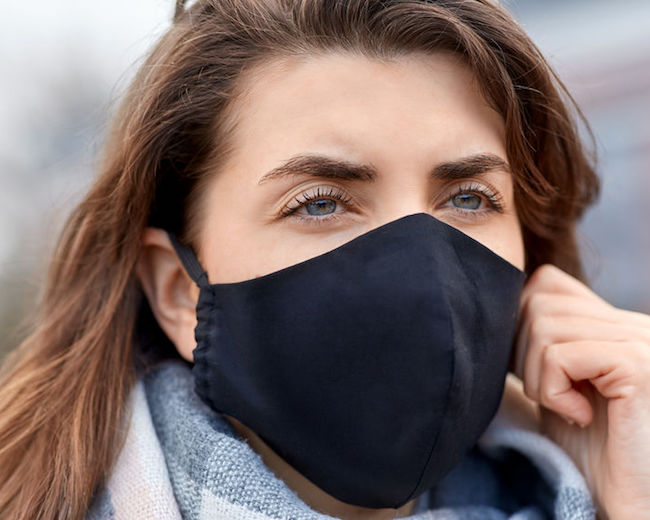Is your mask causing you to break out? Here's what a dermatologist has to say.
As lockdown restrictions are slowly eased in South Africa, the wearing of cloth masks has become mandatory in public spaces to curb the spread of the COVID-19 virus.
However, wearing a mask regularly can also lead to breakouts. We checked in with a dermatologist to find out how to address this skin issue.
Understand what causes mask-related breakouts
Dr Jacques van Wyk is a dermatologist based in Paarl, working in private practice as well as doing sessional work in the public sector at Paarl Provincial Hospital. He says that managing skin conditions that result from wearing a mask starts with understanding the root causes of these issues.
“In 2003, a study found that during the SARS outbreak in Singapore 59.6% of healthcare workers reported acne caused by their N95 masks. Wearing a mask over prolonged periods of time creates a humid skin microclimate which leads to maceration of the skin. This, together with the constant friction of the mask, causes damage to the skin's surface and leads to hair follicles becoming blocked, This is the reason why acne tends to develop when masks become a regular feature,” Dr van Wyk explains.
Do your best to minimise skin irritation
“The best treatment would be to stop wearing masks. Unfortunately, this is not an option in our current situation. As a rule of thumb I would recommend that my patients avoid excessively humid conditions (hard, I know), minimise the application of oils and cosmetics to the affected skin, refrain from picking or scratching at spots and avoiding abrasive skin treatments (e.g. scrubbing) which can aggravate acne,” advises Dr van Wyk.
Choose the right cosmetics
According to Dr van Wyk, using cosmetic products that are too occlusive might make your acne worse. Instead, he recommends looking for products that are indicated for oily skin or are described as ‘non-comedogenic’.
“Wash affected areas twice daily with a mild cleanser and water, and apply an oil-free moisturiser only if the affected skin is obviously peeling. There are various over-the-counter products available for the treatment of acne, this includes Benzac which contains benzoyl peroxide, and Skinoren which contains azelaic acid.”
"Acne products should be applied to all areas affected by acne, rather than just put on individual spots. A thin layer should be applied evenly to clean, dry skin at night. Your night-time routine should consist of washing, drying your face, medicating affected areas, and moisturising (if required).”
Dr van Wyk says it’s important to note that acne treatments can cause dryness, particularly in the first two to four weeks of use, but that the skin adjusts to this. If severe irritation persists, he recommends discontinuing use and consulting with your doctor.
“There are various prescription treatments available. This includes topical retinoids and antibiotics. Therefore, if you do not see any improvement after a few weeks it would be best to see your physician to address the situation from a different angle,” he advises.
IMAGE CREDIT: 123rf.com



